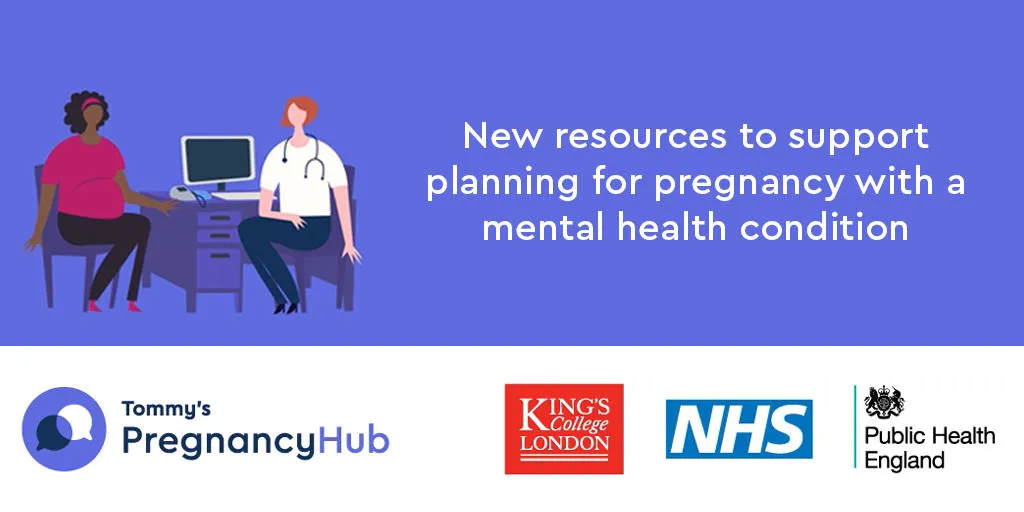The period before pregnancy (preconception) is an ideal time to prepare for a pregnancy even if not actively planning to do so right now and I hope these resources will make women feel more confident and able to discuss future childbearing with their healthcare professionals.
Professor Louise Howard, Professor of Women’s Mental Health at King’s College London
24 February 2021
New partnership to support mothers with serious mental illness
Leading UK pregnancy charity Tommy’s has partnered with NHS England, Public Health England and King’s College London to improve support for women who may get pregnant while managing a serious mental illness (SMI).

Up to 1 in 5 women have mental health problems during pregnancy and after birth, with depression and anxiety affecting 10-15 per cent of pregnancies. Many of the 551,000 people in the UK currently managing SMI are women who may be trying to conceive, or at risk of unplanned pregnancy, which could leave them vulnerable. Expectant and new mums with SMI are at higher risk of physical and mental health issues – for example, mothers diagnosed with bipolar or schizoaffective disorder are much more likely to develop post-partum psychosis.
She continued, “This will mean that women can be ready both physically and mentally for pregnancy and when getting to know their new baby and reduce the risk of physical and mental health complications. I’m delighted that we have been able to produce these resources for women and healthcare professionals to support women with serious mental illness in planning for pregnancy.”

Despite the need to carefully manage their SMI going into pregnancy, studies have shown that up to 90% of women will stop taking medication for an existing mental health problem when they stop contraception or when they discover they are pregnant. Although done with good intentions for fear of affecting the baby’s health, this often happens without talking to a health professional beforehand, which can have serious consequences such as causing a relapse.
Women with SMI have some of the worst pregnancy outcomes and are often overlooked in traditional pregnancy information, leaving them struggling for advice and support.
Jane Brewin, CEO at Tommy's
She added, “We are delighted to have been involved in this project to develop targeted guidance for them so they can better plan for a healthy pregnancy. This additional hub and improved tool will now become part of the suite of our comprehensive PregnancyHub resources we offer for women to support their mental health in the perinatal period.”
Experts from King’s and Tommy’s have teamed up with health authorities at NHSE and PHE to help women with SMI make informed decisions around when to get pregnant and how to treat their condition during pregnancy. Together the organisations have developed a new online information and support hub for anyone with SMI planning a pregnancy, as well as practical guidance for the frontline healthcare professionals who support them. The charity also updated its Planning for Pregnancy tool so preconception health advice is tailored for SMI.
When a woman has a serious mental illness, thinking about having a baby can be both challenging and worrying for her. This excellent new guide brings together the latest evidence to support professionals and women in having conversations about properly planning a pregnancy and having a baby.
Dr Trudi Seneviratne, Consultant Perinatal Psychiatrist at South London & Maudsley NHS Foundation Trust
She continued, “It covers the importance of discussing fertility and sexual health, as well as considering physical health and mental health needs, including medication, and having a ‘ think family’ approach.”
Resources
- Tommy's Pregnancy Hub: Planning a pregnancy when you have a severe mental health illness
- Tommy's Planning for Pregnancy tool
- Tommy's healthcare professionals guide for delivering preconception care to women with a serious mental illness
- Animation: Planning a pregnancy with a serious mental health condition
Contact
For further information please contact Louise Pratt, Head of Communications, Institute of Psychiatry, Psychology & Neuroscience, King’s College London louise.a.pratt@kcl.ac.uk / +44 7850 919020

